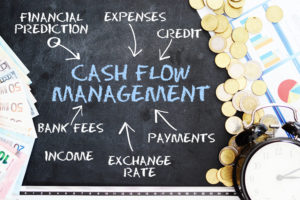Buying a rental property is one of the best real estate investments you can make. Before pulling the trigger, though, it’s important to do a thorough analysis of the property. You need to calculate rental income to determine whether the investment will become profitable. Here’s how you can find out the potential rental property income.
In this article:
How to Calculate Rental Income: Importance of Positive Cash Flow
A lot of people consider investing in rental properties as the path to attaining financial freedom. While this is true to some extent, first-time investors must be aware of the true costs of property investment.
A high rental income does not necessarily mean large profits. You also need to think about expenses that may affect your cash flow each month. Only after considering these factors will you be able to determine whether you can achieve a good rental property return on investment (ROI).
What Is Cash Flow?
 Cash flow is the difference between your rental income and property expenses. When investing in rental properties, you want to choose one that has a good or positive cash flow. That means that there is more money coming in than out.
Cash flow is the difference between your rental income and property expenses. When investing in rental properties, you want to choose one that has a good or positive cash flow. That means that there is more money coming in than out.
The higher the cash flow, the better the rental property ROI. On the other hand, negative cash flow means that you will lose money on the property. There will be no profits.
Apart from earning larger profits, positive cash flow has other benefits. You can put more money in your reserve account for emergency repairs and other unexpected expenses.
You can also use the money to upgrade your rental property. These upgrades will increase your property value and allow you to collect more rent from tenants. Keep in mind, being able to save money can be what will keep your real estate investment afloat during tough economic times.
3 Easy Steps to Calculate Rental Income
Calculating rental income may seem complicated, but it’s a fairly straightforward process. It will take some effort since you have to obtain figures related to the rental property.
However, this is a worthwhile endeavor as it will give you a realistic view of whether a rental property is profitable or not. Here are five easy steps to follow to calculate rental income.
1. Determine Gross Income of Rental Property
With a residential investment property, gross income is typically the rent you collect from tenants each month. This will also include late fees, pet fees, and other related charges. If there are paid amenities such as a laundromat, include the income generated, as well.
2. Calculate All Expenses Related to the Property
In this step, itemize all the expenses made related to the rental property. This may include:
- mortgage payments
- maintenance expenses (repairs and replacements)
- utility bills (water, electric, gas, trash, and so on)
- HOA management or property management fees
- vacancy rate (10% of rental income)
- insurance
- property or real estate taxes
- marketing and advertising costs
- miscellaneous fees
3. Obtain Cash Flow for Rental Property
Deduct property expenses from the gross income to obtain your cash flow or rental income. To calculate rental income yield, multiply rental income by 12 months.
Sample Calculations for Rental Income
| Gross Income | |
| $3,000 | |
| Property Expenses | |
| Vacancy Rate (10%) | $300 |
| Maintenance and Repairs | $300 |
| HOA/Property Management Fees (10%) | $300 |
| Utility Expenses | $200 |
| Property Taxes | $250 |
| Property Insurance | $150 |
| TOTAL EXPENSES | $1,500 |
| Monthly Rental Income | |
| $3,000 – $1,500 =
$1,500 |
|
| Rental Income Yield (Annual Rental Income) | |
| $1,500 x 12 =
$18,000 |
|
How to Calculate ROI on Rental Properties
After you calculate rental income, make sure to calculate for rental property ROI as well. This will help you determine if purchasing a rental property will provide a good return or not. You only need to follow two steps for calculating a rental property’s ROI.
- Divide annual rental income with the total cost of the property.
- Multiply that number by 100.
So, if a $200,000 rental property has a rental income yield of $18,000, the ROI would be 9%
What is a Good ROI?
A good ROI will depend on your personal financial goals. Some property owners are happy with somewhere between 4-10% while others may want a return that is between 8-15%.
Regardless, any property that is under your ideal ROI would not be worth investing in. Anything exceeding your ideal ROI is a good investment deal.
Other Ways to Calculate for Rental Income
If you do not want to follow the above-mentioned steps for calculating rental income, here are a couple of alternatives:
Use a Rental Property Calculator
If you don’t want to crunch numbers manually, use a rental property calculator to determine rental income. You just need to input all the numbers and the calculator will provide you with a detailed breakdown of rental income, property expenses, and ROI.
Use the One Percent Rule
If you cannot obtain actual figures for a potential property, you can use the one percent rule of rental real estate to determine cash flow. Simply put, a property’s rental rate should be at least 1% of the total property value.
For a $200,000 property, rental income should at least be $2,000. The higher the rental income, the better. This is to ensure that rent collected each month will be equal or greater than your mortgage payments. Earning profit is still ideal but with this rule, you can at least guarantee that you will break even.
Keep in mind, though, that this is just a simple measurement tool that will help you identify potential investment properties. If you are seriously considering a property, it is still best to conduct a thorough analysis.
Are There Tax Deductions for Property Owners?
It’s important to include taxable income from rental properties on your annual returns. Taxable income refers to your total gross rental income. As per the Internal Revenue Service (IRS), advance rent must also be reported under gross income. For instance, if a tenant pays first and last month’s rent, the entire amount should be listed on your tax return.
Security deposits that will be returned to tenants do not have to be reported. However, if the property owner claims either a part or the entire security deposit as a form of payment, you should also report the amount.
Property owners can also make tax deductions on their annual returns. Generally, expenses related to managing or maintaining your rental property are considered deductible. Here is a list of deductible expenses:
- mortgage interest
- real estate tax
- property expenses
- maintenance and repairs
- depreciation
Calculate Rental Income to Find Profitable Rental Properties
Investing in a rental property is a major financial decision. That’s why it’s important to do a thorough financial analysis. You must calculate rental income to see whether your desired rental property is profitable or not. For property investment to be successful, it’s important to have a good ROI. Not only can this lead to financial freedom, but it can also allow you to expand your real estate portfolio over time.
If you have additional questions or need further guidance on this matter, feel free to browse our online directory of property management companies. Search by city, state, or zip code to find the best company for your needs.
RELATED ARTICLES:
- How to Negotiate an Apartment Rate Increase
- Where to Begin When You’re a New Rental Property Owner
- 3 Rental Property Upgrades That Aren’t Worth the Investment




 Company
Company